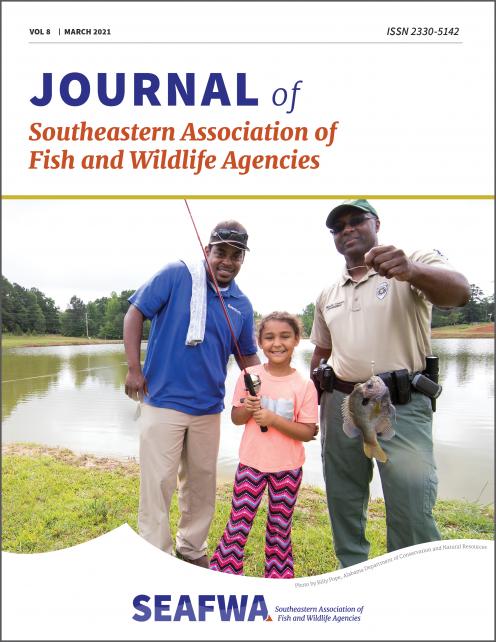Achievement-Oriented Effects on Waterfowl-Hunt Quality at Mississippi Wildlife Management Areas
Waterfowl hunters participate in hunting for appreciative-, affiliative-, and achievement-oriented reasons. To investigate the influence of achievement-oriented factors on hunt quality, we analyzed post-hunt surveys completed by waterfowl hunters at four Mississippi Wildlife Management Areas (WMAs), 2008–2015. We used these questions to calculate a hunt quality score for each participant and tested whether variation in hunt quality was best explained by total number of ducks harvested, number of mallards harvested, total bag weight, or palatability of ducks. Hunt quality increased with...
